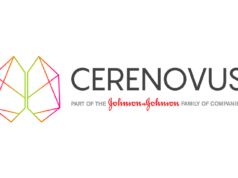Angiochem has announced the presentation of data for its lead drug candidate, ANG1005, a novel paclitaxel-peptide drug conjugate, at the American Society of Clinical Oncology (ASCO) 50th Annual Meeting in Chicago, USA. Phase 1 and phase 2 clinical studies demonstrated promising signs of both central nervous system and peripheral anti-tumour activity of ANG1005 in patients with brain metastases including breast cancer patients. Based on these data, Angiochem has also announced that the company has initiated a phase 2 clinical trial with ANG1005 designed to confirm this anti-tumour activity as a potential new approach to treating HER2+ breast cancer.
“The data being presented on our lead product candidate, ANG1005, underscores its potential utility in treating brain and peripheral metastases from breast cancer and other solid tumours,” says Jean Paul Castaigne, president and chief executive officer of Angiochem. “Effective management of patients with brain metastases continues to be a major clinical challenge. By actively penetrating the blood-brain barrier and cancer cells through LRP-1 receptor, ANG1005 elicits both central nervous system and peripheral tumour responses and provides a potential new treatment option for this difficult to treat patient population.”
The data to be presented at ASCO includes results from a phase 1 and initial phase 2 clinical studies of ANG1005 in HER2+ and HER2- breast cancer patients and solid tumours with brain metastases in which promising signs of anti-tumour activity were observed both in central nervous system and at the periphery. These studies support the advancement of the newly-initiated comprehensive phase 2 clinical study for ANG1005 in HER2+ breast cancer patients with brain metastases.
ANG1005 represents a first-in-class oncology product that leverages the low density lipoprotein receptor-related protein 1 (LRP-1) pathway to cross the blood-brain barrier and enter cancer cells. In addition to the newly-initiated comprehensive phase 2 clinical study in patients with progressive or recurrent brain metastases from HER2+ breast cancer, ANG1005 is also being evaluated in an ongoing phase 2 clinical study in patients with primary brain cancers such as recurrent glioblastoma multiforme and anaplastic glioma.













